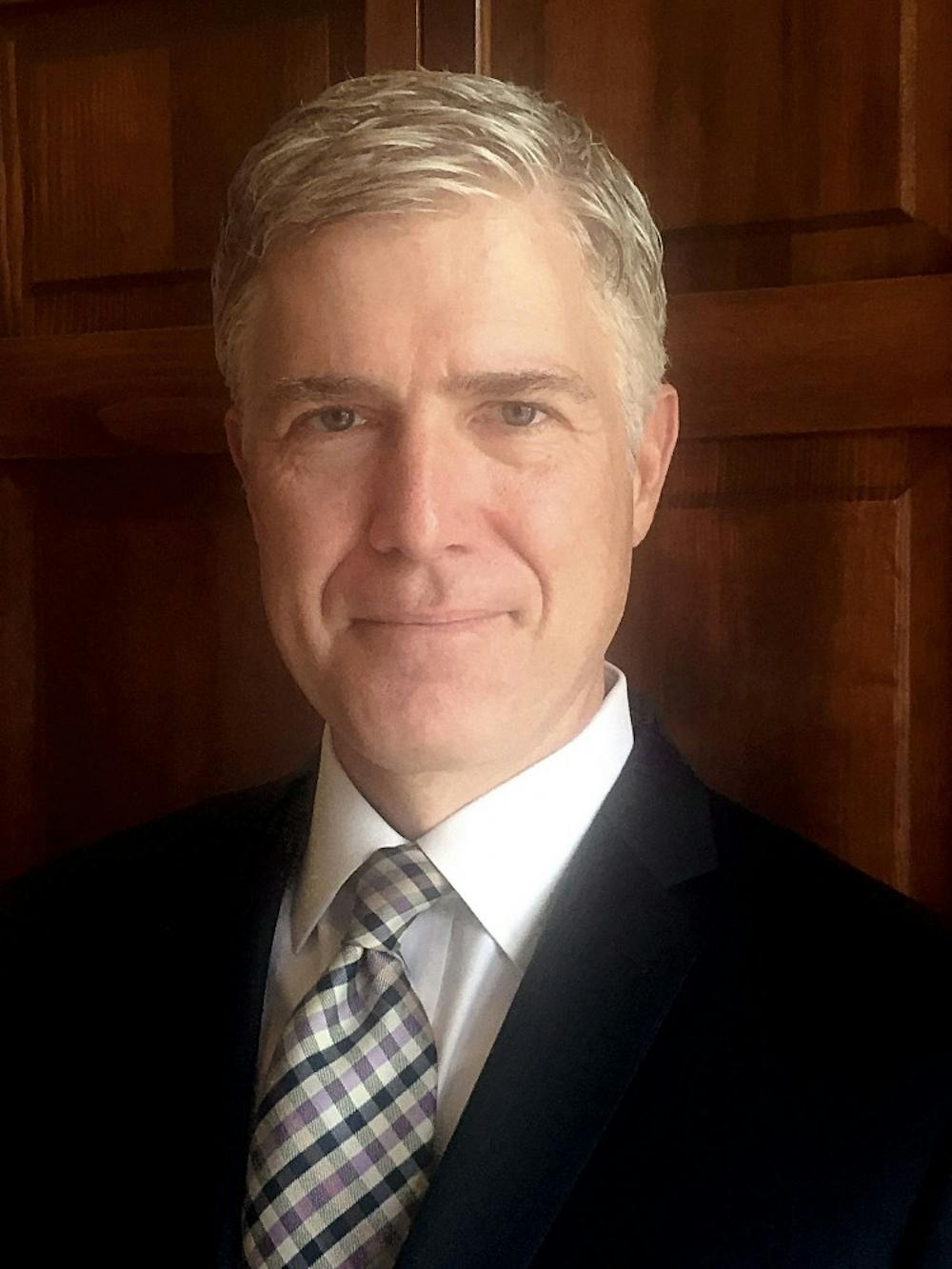Judge Neil Gorsuch was announced as President Donald Trump’s Supreme Court nominee Tuesday — a nomination that could fill the Supreme Court’s vacant seat that has gone unfilled since Justice Antonin Scalia’s death in February 2016.
Gorsuch’s nomination does not come as a surprise, Assoc. Law School Prof. Aditya Bamzai said. Gorsuch’s career has included private practice law, Supreme Court clerkships under Justices Byron White and Anthony Kennedy and his current position on the U.S. 10th Circuit Court of Appeals.
“In the days leading up to the nomination, there was a list of three or four judges that were rumored to really be in the running — and his name was one of them,” Bamzai said. “So by no means does this come as a surprise, and in fact, in some of the predictions market he was the leading candidate.”
Several Senate Democrats have expressed apprehension about Trump’s pick, including Minority Leader Chuck Schumer (NY), who said he has “very serious doubts” about the nomination. Some of the opposition to Gorsuch’s nomination is also related to when the Republican-controlled Senate blocked former President Barack Obama from filling the seat during his last year in the White House with the Chief Judge of the U.S. Court of Appeals for the District of Columbia Circuit court, Merrick Garland.
“We are confident that he will bring respect and a good demeanor to the job,” said Virginia Chambers, a first-year College student and University Democrats Communications Coordinator. “We are however disappointed that he was nominated in the first place. Justice Scalia died almost exactly a year ago, and Barack Obama had almost exactly a year left in his term, so it is actually appalling that the Senate blocked the nominee of Merrick Garland for a year.”
The University Democrats see the Senate’s blocking of Garland as the main point of contention, as do the College Republicans.
“I think the opposition to him [Gorsuch], if any, is [from] the fact that Democrats don’t want a Republican majority on the Supreme Court,” said Alison Hiestand, a third-year College student and chair of the College Republicans. “And also the fact that Merrick Garland, Obama’s pick, was never confirmed.”
The College Republicans have seen member opinion split over Trump, but not over Gorsuch, according to Hiestand.
“I think that pretty much every Republican, including the ones in our organization, are really supportive of this choice and think that this has been a decision that pretty much everyone can get behind,” Hiestand said.
If Democrats block Gorsuch’s nomination on the Senate floor, Trump has said Republican senators should go “nuclear.”
To “go nuclear”, according to Bamzai, is to eliminate the need for a supermajority vote — or 60 votes in the Senate — in order to approve a Supreme Court Justice. Republicans currently hold 52 seats in the Senate. Democratic leaders have “gone nuclear” before in eliminating the supermajority requirements for executive office appointments and federal judicial nominees for lower courts.
“Now there’s the possibility that if there are over 40 Democrats who oppose the nominee, the Republicans may eliminate the supermajority requirement for Supreme Court Justices too,” Bamzai said.
The College Republicans may try to encourage some senators to vote to confirm Gorsuch through letter writing and phone calls, but they are confident in his chances, Heistand said.
“This is a very mainstream Republican choice,” Hiestand said. “I think he should definitely get confirmed and that it should go through relatively easily.”
Gorsuch’s confirmation hearings are yet to be scheduled.





